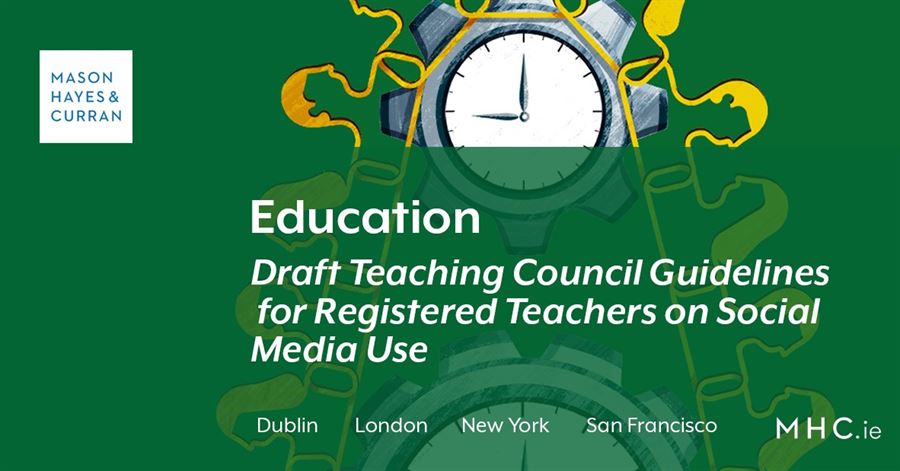
It is certainly the case that registered teachers may often find themselves subject to public scrutiny over and above other public sector employees. This can in part be attributed to the nature of their work with children and vulnerable persons. The Teaching Council guidelines outline risks and pitfalls for registered teachers in their use of social media. They also provide assistance as to how teachers can minimise the risks faced when using social media. The importance of privacy and confidentiality is emphasised, and there are useful pointers for teachers on how to be increase their online privacy.
What the guidelines say
The draft guidelines specifically state that:
- Teachers should keep personal and professional use of social media separate, and
- As far as possible, avoid communicating with students through personal social networking sites unless it is within agreed school social media policies.
Principles not just for Principals
The draft guidelines further set out certain principles/points for teachers to be mindful of when using social media. These are summarised as follows:
- Always consider the possible impact on colleagues, students or the public’s perception of the profession, before publishing any content on social media sites
- Treat everyone with respect and avoid abusive, unsustainable or malicious behaviour online
- Make sure comments are not defamatory or otherwise in breach of the law
- Maintain the professional standards expected in other forms of communication
- Acknowledging, liking or sharing someone else’s post can imply that you endorse or support their point of view
- Conduct online does not have to relate to students or teaching in order for it to have a bearing on your fitness to teach
- Postings online are subject to the same laws of copyright and defamation as written/verbal communication
- Unwise behaviour online may result in criminal or civil action
It is understood that the guidelines will be linked to the Teaching Council’s existing code of professional conduct, which requires teachers to “ensure that any communication with pupils/students, colleagues, parents, school management and others is appropriate, including communication via electronic media, such as email, texting and social networking sites”.
Conclusion
From an employer’s perspective, Boards of Management should ensure that they issue and/or update their own schools’ social media policy to reflect the principles in these guidelines. Importantly, the draft guidelines state, “These guidelines may also assist schools when developing a school’s individual social media policy. However, it is important to note that these guidelines should not replace or act as a social media policy for schools.”
For more information on preparing social media policies, and/or the how to address issues relating to teachers and social media, please contact a member of our Education team.
The content of this article is provided for information purposes only and does not constitute legal or other advice.






